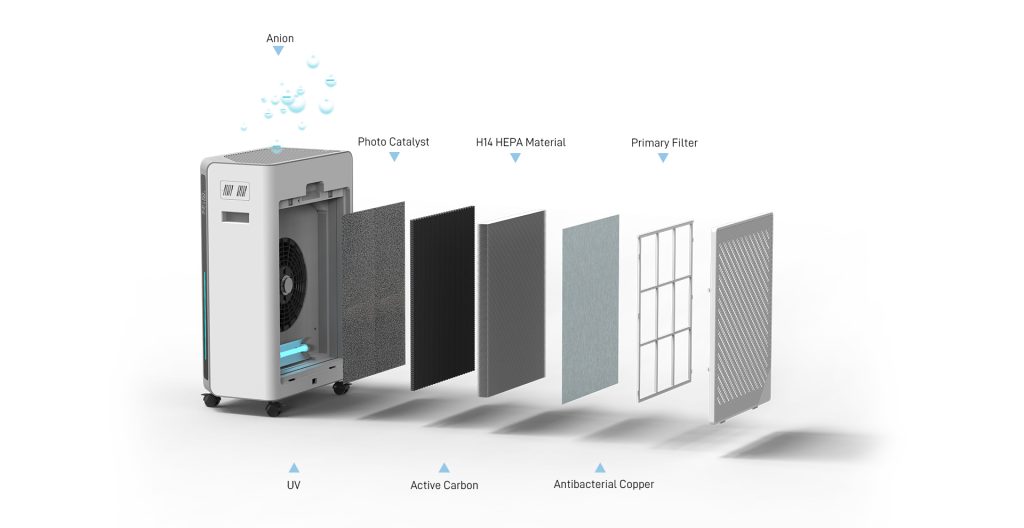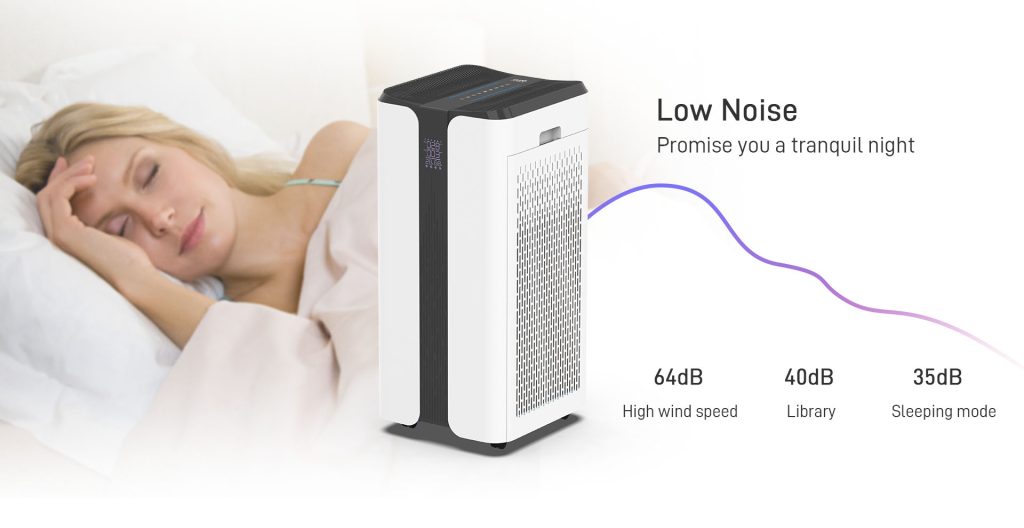As winter sets in, maintaining good indoor air quality becomes more important than ever. With colder temperatures, closed windows, and the increased use of heating systems, indoor air can quickly deteriorate. Outdoor air pollution also tends to increase, making it essential to improve indoor air quality during the winter months. In this article, we explore the importance of air purifiers during winter, how to choose the right one, and how you can maximize its benefits for a healthier, more comfortable home.
Why Winter Air Quality Matters
In winter, many homes are sealed off to retain heat, resulting in reduced airflow and poor ventilation. Unfortunately, this leads to a buildup of indoor pollutants, such as dust, allergens, pet dander, and harmful chemicals. Meanwhile, heating systems can dry out the air, which can further aggravate respiratory issues and increase the spread of viruses and bacteria.
Additionally, outdoor pollution levels tend to rise during the winter months due to increased heating fuel usage and atmospheric conditions that trap pollutants near the ground. Consequently, the air inside your home may actually become more polluted than the air outside, highlighting the need for effective air purification solutions.
How Air Purifiers Improve Indoor Air Quality in Winter
Air purifiers are designed to filter out indoor pollutants and improve air quality by removing contaminants such as dust, pollen, smoke, mold spores, bacteria, and viruses. They are especially valuable during winter, when homes are closed up tight, trapping harmful particles indoors.
Here are some key benefits of using an air purifier in winter:
-
Reducing Allergens: Air purifiers can significantly reduce the presence of common allergens like dust, pet dander, and mold spores that may accumulate when windows are kept shut.
-
Eliminating Harmful Pollutants: Many household products emit volatile organic compounds (VOCs), which can accumulate in poorly ventilated homes. Air purifiers with activated carbon filters are especially effective at removing these harmful chemicals.
-
Fighting Germs and Viruses: Some air purifiers come equipped with HEPA filters and UV-C light technology, both of which can kill bacteria and viruses, making them ideal for cold and flu season.
-
Balancing Humidity: During winter, indoor air can become excessively dry, leading to discomfort like dry skin and irritated respiratory passages. Some air purifiers feature built-in humidifiers, maintaining optimal humidity levels for enhanced comfort.
How to Choose the Best Air Purifier for Winter
Selecting the right air purifier involves considering factors such as filter type, room size, and energy efficiency. Here are a few tips to guide your purchase:
-
Filter Type: Look for a model with a True HEPA filter, which can capture particles as small as 0.3 microns, including dust, pollen, and pet dander. For additional protection against bacteria and viruses, consider a purifier with UV-C light or ionizing technology.
-
Room Size: Ensure the purifier is designed to cover the square footage of the room where it will be used. Each air purifier has a specified coverage area, so choose one that matches your space for maximum efficiency.
-
Noise Level: If you're placing the purifier in a bedroom or quiet area, consider models with lower noise levels, ensuring it won't disrupt your sleep or daily activities.
-
Maintenance and Filter Replacement: Regular maintenance is key to keeping your air purifier running effectively. Many models come with filter replacement indicators to remind you when it's time to replace filters.
-
Energy Efficiency: Look for energy-efficient models, especially if you plan to run the air purifier continuously during winter. Choose one with an Energy Star certification to help reduce electricity costs.
Maximizing the Effectiveness of Your Air Purifier
To get the most out of your air purifier, follow these tips:
-
Place it in an Optimal Location: Ensure the air purifier is placed in an open area where airflow is unobstructed. Avoid corners or spaces where furniture could block the intake or output vents.
-
Run it Continuously: For optimal air quality, run the air purifier 24/7, particularly during winter when indoor air quality can be compromised. Continuous operation will help ensure that your home stays fresh and clean.
-
Regular Maintenance: Clean the exterior and replace filters as recommended by the manufacturer to keep the unit running efficiently and prevent dust buildup.
-
Ventilate the Room Occasionally: Even in winter, try opening windows for a short period to reduce the accumulation of indoor pollutants. This can help your air purifier work more effectively.

Why You Need an Air Purifier This Winter
Winter is the time when indoor air quality tends to deteriorate due to reduced ventilation, heating systems, and outdoor air pollution. Air purifiers play a crucial role in filtering out harmful particles and improving air quality, making them an essential appliance for every home during the cold season. By choosing the right air purifier and following proper maintenance practices, you can ensure that your home stays comfortable, healthy, and free of harmful contaminants.
Don't let winter air quality impact your health. Invest in an air purifier today and experience the benefits of cleaner, healthier air all season long.
Choose Leking Air Purifiers for Healthier Indoor Air
Leking Air Purifiers are designed to provide cleaner and safer air for your home. Let us help you create a healthier winter environment for you and your family!



